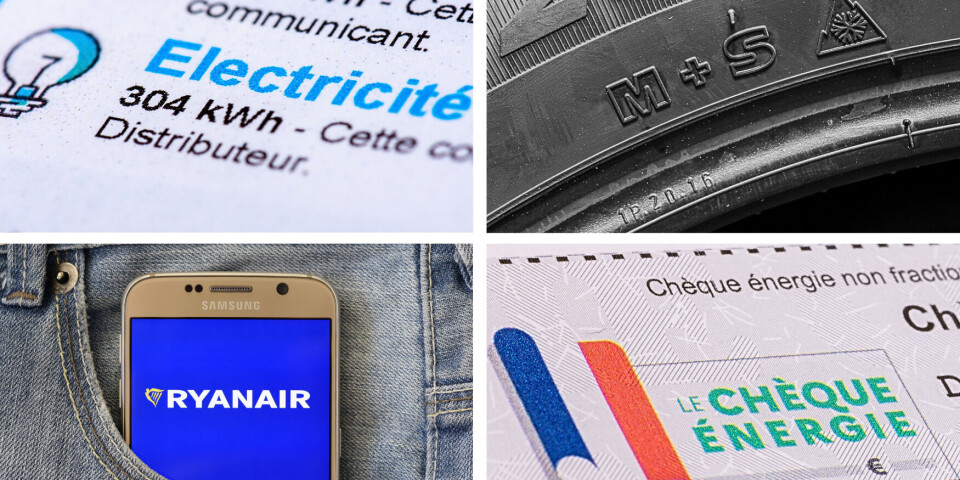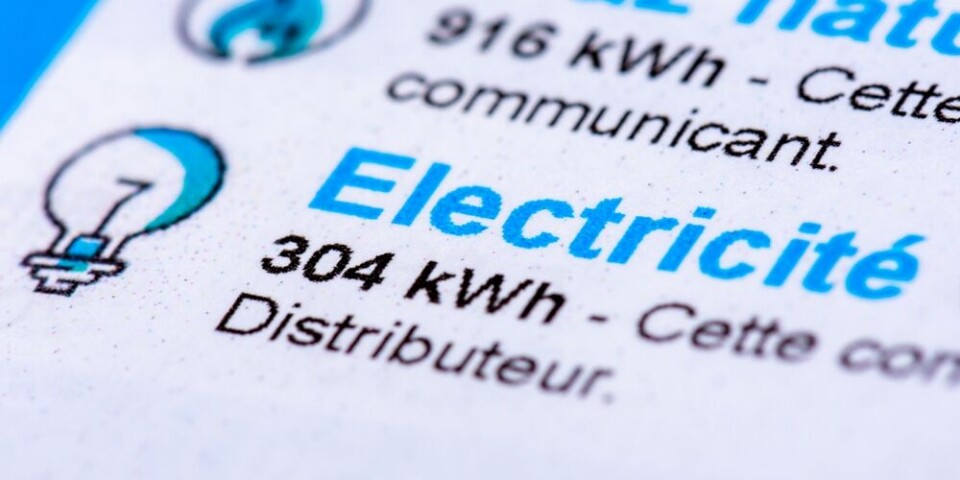-
French home insurance: average costs are on the rise
Location and weather risks biggest contributor to increase
-
Is it worth getting breakdown cover in France?
This can be an optional extra if not already provided in insurance policy
-
Can new arrivals in France insure vehicle on foreign licence?
Insurers should bear in mind validity rules for different countries’ licences
In premium position for mortgage insurance
There are many factors that dictate the cost of premiums on your French mortgage insurance, including lifestyle and health. An expert answers some of our readers’ common questions, and also rounds up upcoming law changes that affect your chances of finding a cheaper insurer
Is it obligatory to buy insurance for a French mortgage?
An insurance called Assurance Emprunteur is compulsory. There are three parts to this insurance: life assurance (called death insurance in France), PTIA (permanent and total incapacity insurance) and ITT (total temporary incapacity to work).
For a couple, the insurance is generally split between them. If, for example, both earn a similar amount, you can take insurance cover for 50% each.
If there is a significant difference in incomes or one borrower does not work then you can insure the main income earner for 100% and choose a lower percentage for the other borrower i.e. 50%, 25%. It is possible to take redundancy cover too if you wish.
For a mortgage, must we take the life assurance offered by the bank? Will they make it difficult for us if we don’t?
The insurance you take to support your mortgage does not have to be with your lender (Loi Lagarde), but your lender must check and agree that the insurance you are arranging covers the minimum levels required by them.
The lender will be required to sign and accept the policy and the new policy must have at least the same guarantees as the insurance offered by the mortgage lender.
New laws have made it easier to change your insurer so you can shop around after you have taken the insurance as well as before.
Currently, you can change to a new company for your mortgage life assurance policy within 12 months of the mortgage offer letter (Loi Hamon).
However, this will be expanded in January 2018 to enable you to change provider after the first year and on the anniversary each year (Loi Sapin2).
I am a smoker, how will this affect the premiums I have to pay?
When you apply for the mortgage insurance, you will be asked to answer a questionnaire which will ask if you smoke, or have done so in the previous two years.
If you answer yes then most companies will need to know the number and type of cigarettes/cigars you smoke per day.
The questionnaires also now ask for information if you use electronic cigarettes. If you are a non-smoker you will be eligible for a discount on the premium.
If I stop smoking will the premiums be reduced?
Once you have been a non-smoker for two years some companies will review your policy and review your premiums.
If allowed, they will issue an ‘avenant’ which is an amendment to the current policy’s terms and conditions.
This change must be accepted by the lender.
I am 50 and want to take a mortgage – will I have to take a medical for the health insurance?
For every life assurance policy you will be required to fill in a questionnaire. Depending on the company you may be asked to have a blood test as standard once you are over a certain age.
Generally, it depends more on the results of the questionnaire than your age as to whether you must have a medical or not.
What information will I need to tell my insurer?
Typical questions are your weight and height, if you smoke, if you work at height or undertake any extreme sports, etc. You will be asked some medical questions, for example on medical problems you have had or any operations, whether you take any medication, had time signed off work due to illness for more than 30 days and if you have any medical procedures planned in the next 12 months.
Depending on your answers on the questionnaire you may be sent for medical tests.
Where do my life insurance premiums get invested in France?
It is important not to get mixed up between the French investment plan called Assurance Vie, and life assurance, which is insurance in case you die during the term.
Assurance Vie translates literally as ‘life assurance’ but is a totally different financial product to life assurance, which is actually called death insurance (Assurance Décès) in France.
I would like a French loan for a new car. Do I need insurance cover for repayments in case of illness or loss of employment?
It is not compulsory to take insurance, however you should consider what you have as a financial cushion in case your circumstances change. In some cases, the bank may insist on the insurance if the decision to grant the loan is borderline, as this provides the bank/finance company with a guarantee that the loan will be repaid if your circumstances change.
Sometimes you may find that there is a special offer, especially with car finance, that if you take the finance company’s insurance you receive a benefit from the garage in return.
If you wish to take insurance you can compare the cost of insurance with a different insurer other than the finance company/bank who are providing the car loan.
I am in remission from breast cancer; does that mean I cannot have life insurance? Or that the premiums will be crazy high?
When you complete the medical questionnaire you must include all relevant information. Once the underwriter has considered this, you may face a further, more in-depth questionnaire, be asked for medical examinations, or asked for further information from your consultant. The insurer will then advise you if any illnesses are excluded and any change to the quoted premium. Some companies accept certain illnesses more than others, for example, one insurer provides a specific diabetes questionnaire where as it will be automatically excluded by another insurer.
However, a law called la Loi du 26 janvier 2016 gives cancer survivors the right to be forgotten – le droit à l’oubli – after a period of time after treatment has finished. This varies on the type of cancer: one year for breast cancer, for example, three years for stage 1 testicular cancer and six years for stage 2, up to a maximum of 10 years. This is cut to a maximum of five years for under-18s.
I do not have a mortgage or loan. Can I still have a life assurance policy?
If you don’t need to cover a loan or mortgage you can arrange an assurance décès policy. You can build the policy up to include permanent and total disability, critical illness, accidental death, temporary disability, widow’s pension, education fees for children and other options if you want a more comprehensive policy.
This type of policy is per person, rather than like a joint life, first death joint policy in the UK. There is no end date other than your 75th birthday. With some policies/companies some benefits such as temporary disability will disappear on your 60th/65th birthday.
Answers compiled with the help of Axa Agence International,
a dedicated English-speaking agency www.axa-in-france.fr
Email insurance questions to news@connexionfrance.com
























